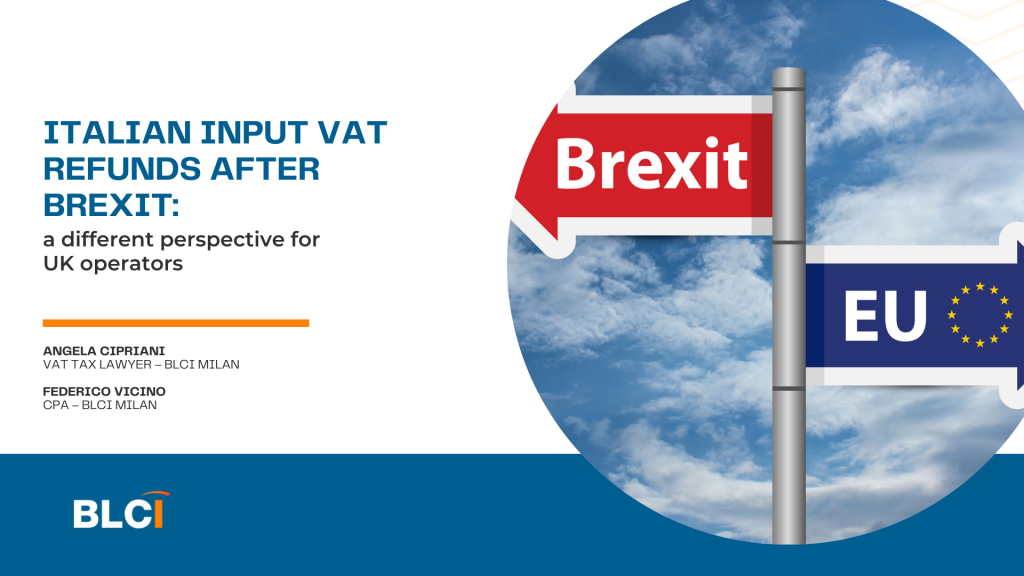
Angela Cipriani – Vat Tax Lawyer – BLCI Milan
Federico Vicino – CPA – BLCI Milan
On 23 June 2016, a majority of British voters supported the cessation of the United Kingdom’s membership in the European Union. After negotiations on the terms of the United Kingdom’s withdrawal from the European Union, a Withdrawal Agreement was concluded between the European Union and the United Kingdom and entered into force on 1 February 2020.
The United Kingdom left the European Union, including the Customs Union, on 31 January 2020 which became the formal date of the United Kingdom’s departure from the European Union; as of 1 January 2021, the processes of importing and exporting goods from the European Union have changed.
One of the most important effects of the United Kingdom’s exit from the European Union, from an Italian tax standpoint, has arisen in VAT refunds. For extra-EU economic operators, the Italian legislation provides, among others, the “condition of reciprocity”: the eligibility rules for applicants from outside the European Union are similar to those from the European Union. However, reciprocity is required.
Italy has signed reciprocity agreements with Switzerland, Norway, and Israel. But a good interpretation of the Italian tax landscape cannot exclude that the condition of reciprocity required by the Italian legislation is satisfied also for UK operators
First, the Withdrawal Agreement contains clear provisions on the exchange of information and broad VAT collaboration between the EU/UK: on this point, the Italian tax administration confirms that the withdrawal agreement can be considered substantially similar to the administrative cooperation instruments in force in the EU and this circumstance allows taxable persons established in the United Kingdom to access the institution of direct VAT identification (art 35ter of the Italian VAT act)
On the other hand, the procedure applied by the United Kingdom for the reimbursement of input VAT in that country – as provided by “VAT Notice 723A” issued by HM Revenue & Customs – is very similar to that provided for by Italian legislation; it provides that, when completing the application form, the non-resident and not established in the United Kingdom must state that:
- the goods or services purchased in the United Kingdom have been used for the conduct of business carried out in this country;
- in the same period, no sales of goods or services relevant to VAT purposes were carried out in UK the
In light of the above, UK companies will be able to continue to operate within the Italian market with the possibility of having the VAT paid therein reimbursed and, last but not least, the possibility of identifying themselves directly that, substantially, represents a point of access to the European Union market.